Beautiful outdoor areas are an art form in addition to being aesthetically pleasing. Landscape design necessitates expertise in combining functionality and visual appeal. It is a meticulously planned procedure that converts ordinary yards into stunning views. The foundation of good landscaping is proper design, material selection, and, most significantly, a functional water irrigation system. This technique guarantees that plants thrive, flowers bloom, and the landscape flourishes year-round.
When it comes to irrigation system installation, a lawn sprinkler is rapidly gaining popularity. This is because sprinkler irrigation systems work best in all field situations. Sprinkler systems distribute water uniformly and efficiently.
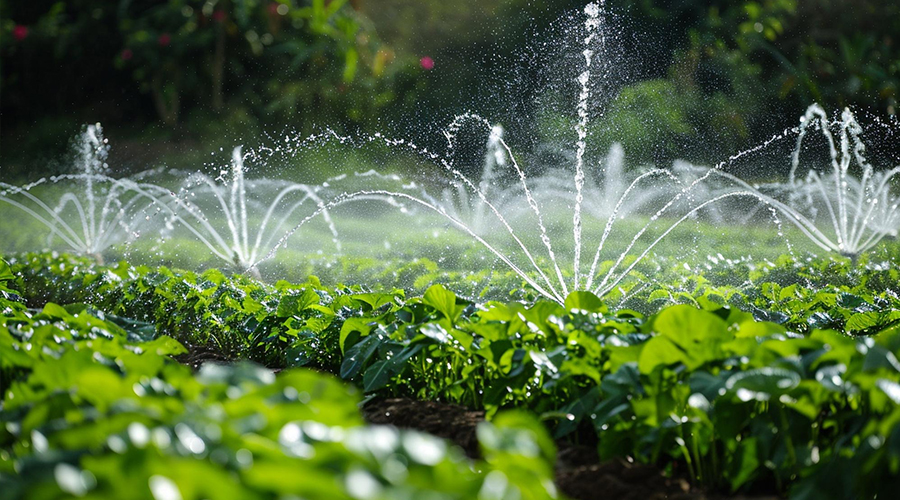
What is Sprinkler Irrigation System?
The sprinkler irrigation system watered your farm like normal rains. Water is pumped through a network of pipes before being dispersed by sprinklers, resulting in tiny droplets that fall evenly across the soil surface. Spray heads at the terminals provide full coverage.
Sprinklers are adaptable and can be used for any garden, landscape irrigation, or field, giving enough coverage for small to big areas. Their diverse discharge capacity enables them to be employed on practically all types of irrigable soils. However, sprinkler systems can easily become blocked owing to sediments or rain, and bigger systems necessitate a major capital investment.
Are you looking for garden irrigation system installation services?
What are the Benefits of Sprinkler Irrigation?
When used correctly, a feature-rich sprinkler irrigation system can provide numerous advantages over traditional irrigation methods. This is why it’s growing more popular among farmers. Here are some of the major benefits of sprinkler irrigation:
- Efficient Water Use: Sprinkler systems are designed to provide water directly to plants, reducing runoff and evaporation. This allows them to use water far more efficiently than other irrigation methods, such as flood irrigation.
- Precision Irrigation: Sprinkler systems enable exact control over the amount of water delivered to individual plants. This is especially significant for lawns that require varying amounts of water at different phases of growth.
- Improved Herb Growth and Yield: Sprinkler systems can boost herb and veggie growth and productivity by giving the appropriate amount of water at the right time.
- Flexible Irrigation Scheduling: Sprinkler systems enable farmers to irrigate their crops at the most appropriate periods. This can assist in cutting water usage and energy expenses while still ensuring that plants get enough water to develop.
- Reduced Soil Erosion and Nutrient Loss: Sprinkler systems can help to prevent soil erosion and nutrient loss by directing water to plants in a regulated manner. This leads to healthier lawns.
- Reduced Labor Expenses: Sprinkler systems can help to lower labor expenses by automating the irrigation process. This allows you to focus on more critical chores like planting and pest management.
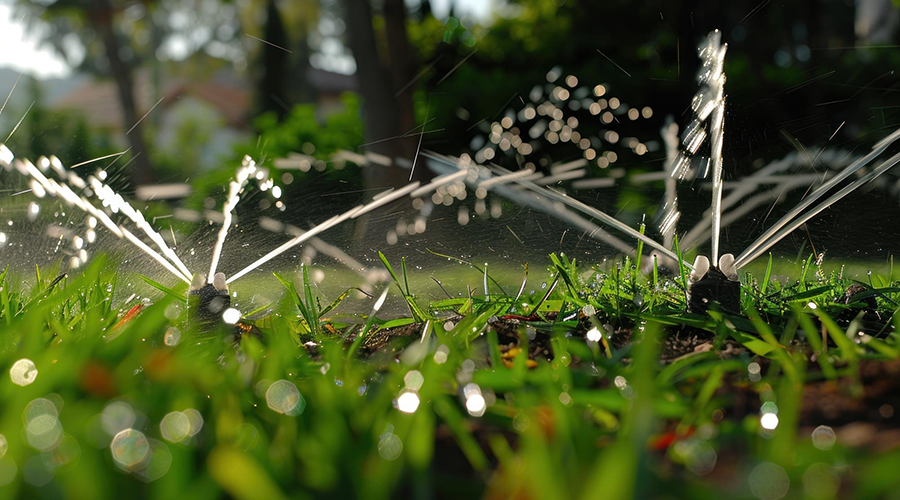
Major Components of Sprinkler Irrigation System:
| 1 | Pumping station or Header Assembly | 2 | By-pass valve |
| 3 | Fertilizer tank | 4 | Filtration system |
| 5 | Pressure gauges | 6 | Control valves |
| 7 | HDPE / PVC Pipes | 8 | QRC Pump connector |
| 9 | Sprinkler Nozzles | 10 | Service Saddle |
Types of Sprinklers Based on Precipitation
Different types of sprinklers are designed to provide varying rates of precipitation, ensuring efficient water distribution for different landscapes and irrigation needs. Here are the types of sprinklers based on precipitation:
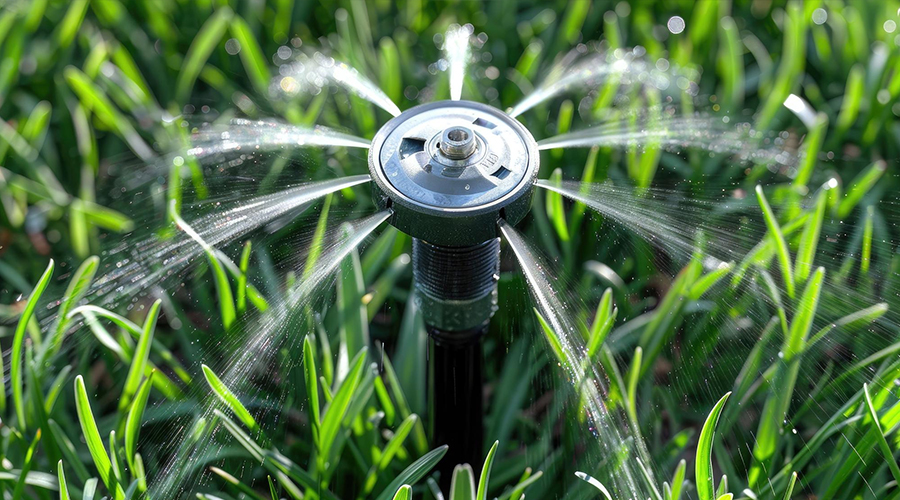
Rotary Sprinklers:
- Emit water in a rotating pattern, covering a circular area.
- Suitable for large lawns, parks, and fields.
- Adjustable nozzles control distance and water flow.
Impact Sprinklers:
- Emit water through a swinging arm, creating a distinct “impact” sound.
- Ideal for large areas and uneven terrain.
- Adjustable deflector plates regulate coverage.
Fixed Spray Sprinklers:
- Discharge water in a fixed pattern, usually in a fan or rectangular shape.
- Suitable for small to medium-sized lawns, flower beds, and gardens.
- Available in various spray patterns and distances.
Pop-Up Sprinklers:
- Installed underground and pop up when activated, retracting when not in use.
- Commonly used in residential lawns and landscapes.
- Offer precise water distribution and disappear when not in operation.
Oscillating Sprinklers:
- Move back and forth, creating a fan-shaped spray.
- Best suited for rectangular or square areas.
- Suitable for medium-sized lawns and gardens.
Drip Sprinklers:
- Deliver water directly to the root zone of plants through a network of tubes and emitters.
- Ideal for water-efficient irrigation and individual plants or rows.
- Minimize water wastage and reduce evaporation.
Gear-Driven Sprinklers:
- Use gears to rotate the nozzle and distribute water in a controlled manner.
- Suited for medium to large lawns and landscapes.
- Provide consistent and even coverage.
Bubbler Sprinklers:
- Emit water in a gentle, bubbling manner, preventing soil erosion.
- Suitable for watering shrubs, trees, and flower beds.
- Offer targeted and localized irrigation.
Multi-Stream Sprinklers:
- Emit multiple streams of water in a circular or square pattern.
- Designed for watering larger areas with reduced runoff.
- Suitable for lawns, gardens, and flower beds.
Micro-Sprinklers:
- Similar to traditional sprinklers but on a smaller scale.
- Ideal for smaller gardens, pots, and hanging baskets.
- Provide precise water application to specific areas.
Are you looking for a professional irrigation company near me in Atlanta?
What is the sprinkler system installation cost?
First and foremost, while it may seem obvious, each yard (and sprinkler installation process) is unique. This is an important consideration when calculating the cost of installing a sprinkler system. On average, a new sprinkler installation costs between $3000 and $3500.
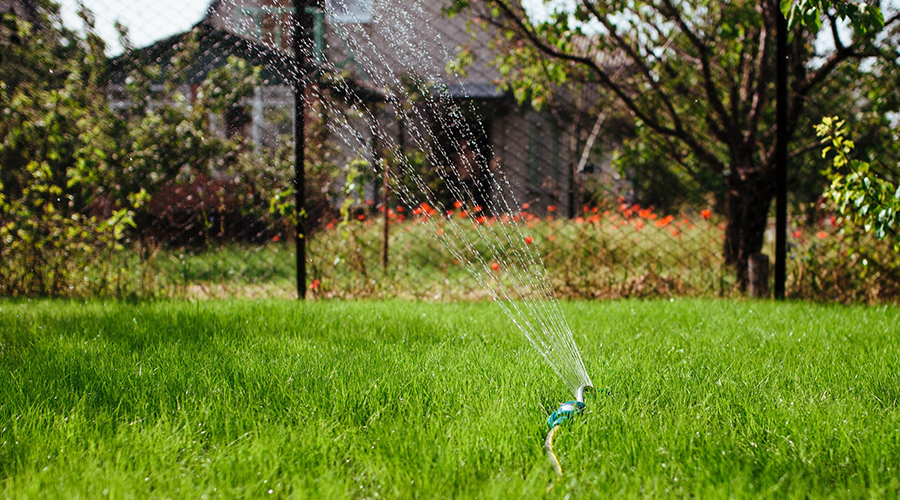
Here are the Main Factors Affecting Sprinkler Installation Cost:
Area:
This is probably the most evident aspect influencing the typical cost of a sprinkler system. The whole acreage of your property’s watering area will naturally influence the quantity of materials required, such as PVC pipe, polyethylene pipes, and sprinkler heads. Simply put, the more grass to water, the more materials we’ll need to install.
At Outdoor Makeover and Living Spaces, our crew also considers your entire irrigation plan. For example, a wide-open 10-acre site will necessitate a different strategy than a 10-acre property with a lot of ` or other barriers, such as fencing. The variety and difficulty levels of your watering area might have an equal impact on your sprinkler system estimate as the overall area.
Types of Sprinkler Heads:
Expanding on the previous point, the types of sprinkler heads necessary to maintain 100% water coverage on your property will have an impact on the total cost of your residential sprinkler system. No two yards are exactly alike, and in the realm of sprinkler installation, that means no two installations are identical.
Your lawn’s zone type will determine the supplies and labor required.
Zone types can be divided into three categories: turf, landscape, and drip zones. The primary difference between the three is the amount of water required in each location to attain the necessary growth levels.
For example, a drip zone slowly drops water directly to the roots of your garden or landscape, but it requires a specific installation with separate pipes to accomplish that gradual drip.
On the other hand, Broad turf zones work best with a cycle and soak program in which the heads provide a vast area of water coverage for short periods before allowing the water to soak into the soil beneath your grass before resuming the process.
The number of each sort of zone (and the matching sprinkler heads) has a direct impact on your total costs.
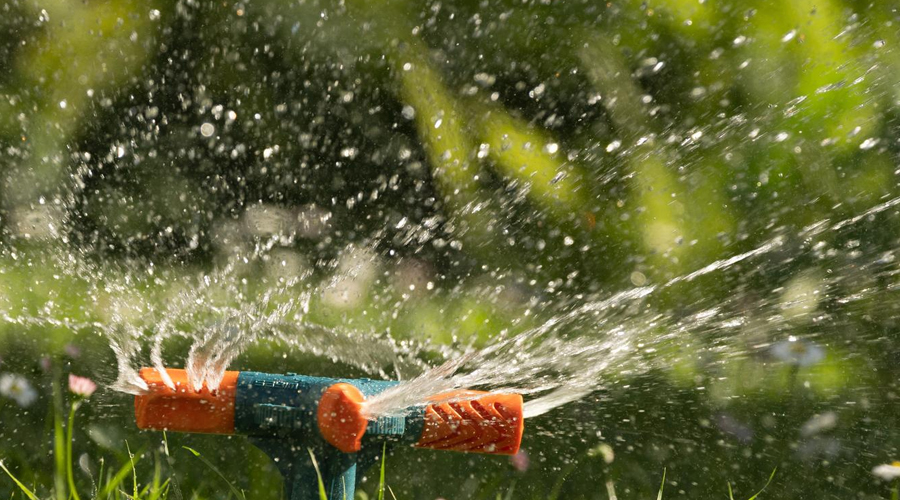
Type of Water Tap Required
Irrigation systems will also require different sorts of water taps, implying that the “hook up” to your main water supply will be of varying difficulty.
For example, a simple pit tap close to your water meter is easier (and less expensive) to install than connecting to a deeply buried copper water line.
Sprinkler system installation requires hiring a professional plumber to connect to the water main, which raises the cost of the installation.
Are You Interested in Installing a Sprinkler System?
Every drop of water conserved improves the overall health of Atlanta’s ecosystems. Outdoor Makeover and Living Spaces assist you in implementing more effective irrigation practices, considerably lowering water wastage and helping our state’s sustainability goals. So, what are you waiting for? Contact us today!
FAQ’s
What is a sprinkler irrigation system?
A sprinkler irrigation system is a method of watering plants, lawns, or agricultural fields by spraying water through a network of pipes and sprinklers, mimicking natural rainfall.
How does a sprinkler irrigation system work?
The system uses a series of pipes and sprinklers to distribute water evenly across the area. Water is pumped from a source, such as a well or municipal supply, and delivered through the pipes to the sprinklers, which spray the water onto the plants or lawn.
What are the benefits of using a sprinkler irrigation system?
Sprinkler irrigation systems provide uniform water distribution, conserve water, save time, reduce labor costs, and can be automated to water at optimal times, helping maintain healthy landscapes and gardens.
Are there different types of sprinkler irrigation systems?
Yes, there are several types, including fixed spray, rotary, drip, and impact sprinklers. Each type is designed for different applications and water coverage needs.
How often should I water my lawn with a sprinkler system?
The frequency of watering depends on the type of grass, climate, soil conditions, and season. Generally, lawns need 1 to 1.5 inches of water per week, either from rainfall or irrigation, spread over 2 to 3 watering sessions.
Can a sprinkler irrigation system save water?
Yes, when properly designed and maintained, a sprinkler irrigation system can save water by delivering precise amounts directly to the areas that need it, reducing waste and runoff.
How do I maintain my sprinkler irrigation system?
Regular maintenance includes checking for leaks, cleaning or replacing clogged nozzles, adjusting sprinkler heads for proper coverage, testing the controller and timer, and winterizing the system if you live in a freezing climate.
What should I do if my sprinkler system has low water pressure?
Low water pressure can be caused by several factors, such as leaks, clogged pipes, or incorrect settings. Inspect the system for any visible issues, check the water supply line, and consider contacting a professional for a thorough inspection.
Can I install a sprinkler irrigation system myself?
While it is possible for DIY enthusiasts to install a basic system, professional installation is recommended to ensure proper design, efficiency, and long-term performance, especially for larger or more complex landscapes.
How much does it cost to install a sprinkler irrigation system?
The cost varies depending on the size of the area, type of system, materials, and labor. On average, a residential sprinkler system installation can range from $1,500 to $5,000 or more.

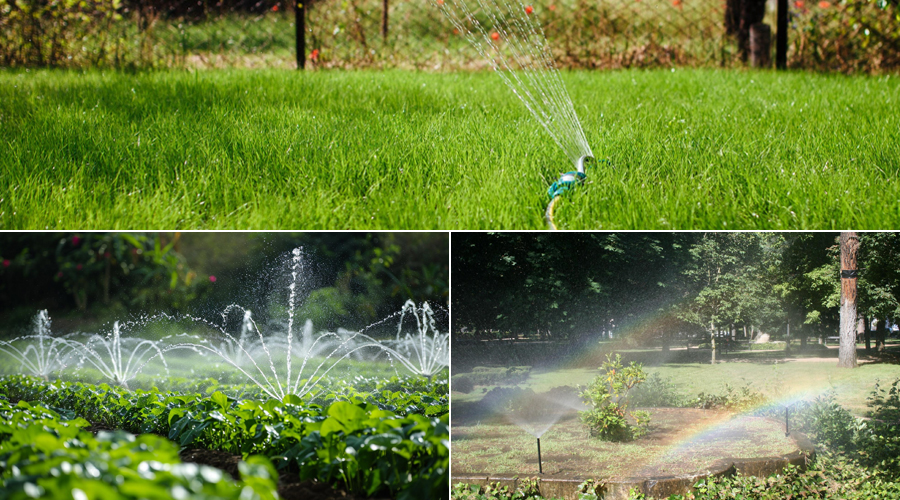
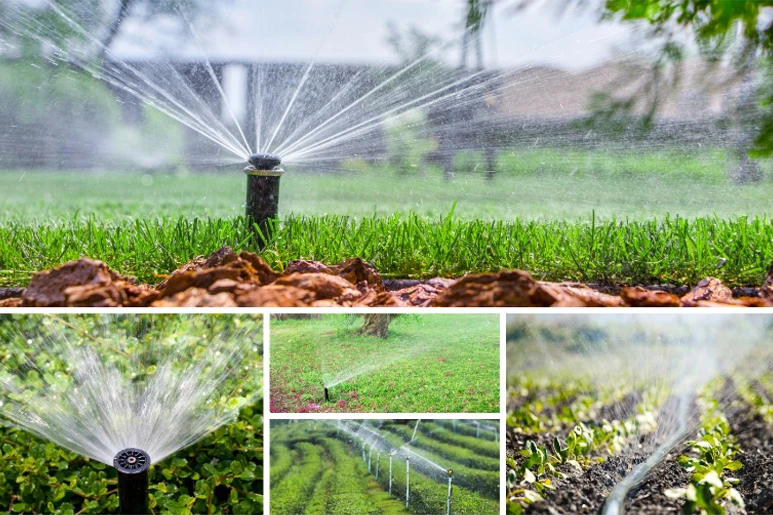 Advanced Irrigation Systems for Efficient Luxury Landscaping
Advanced Irrigation Systems for Efficient Luxury Landscaping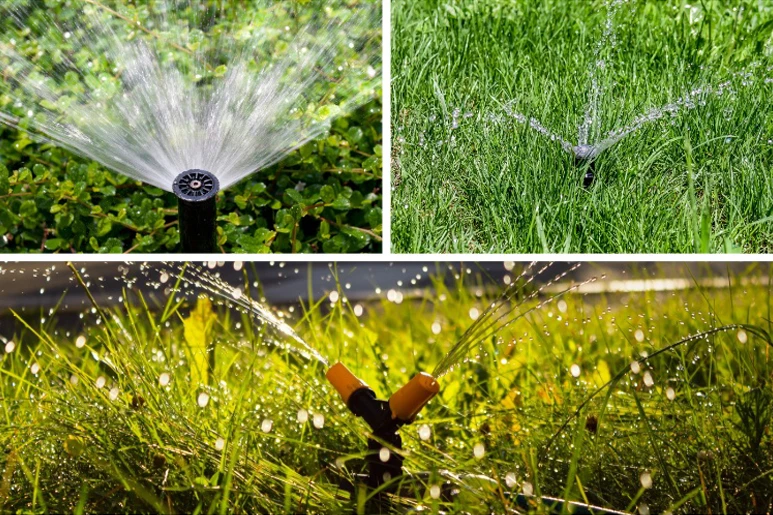 Irrigation System Installation: A Step-By-Step Guide
Irrigation System Installation: A Step-By-Step Guide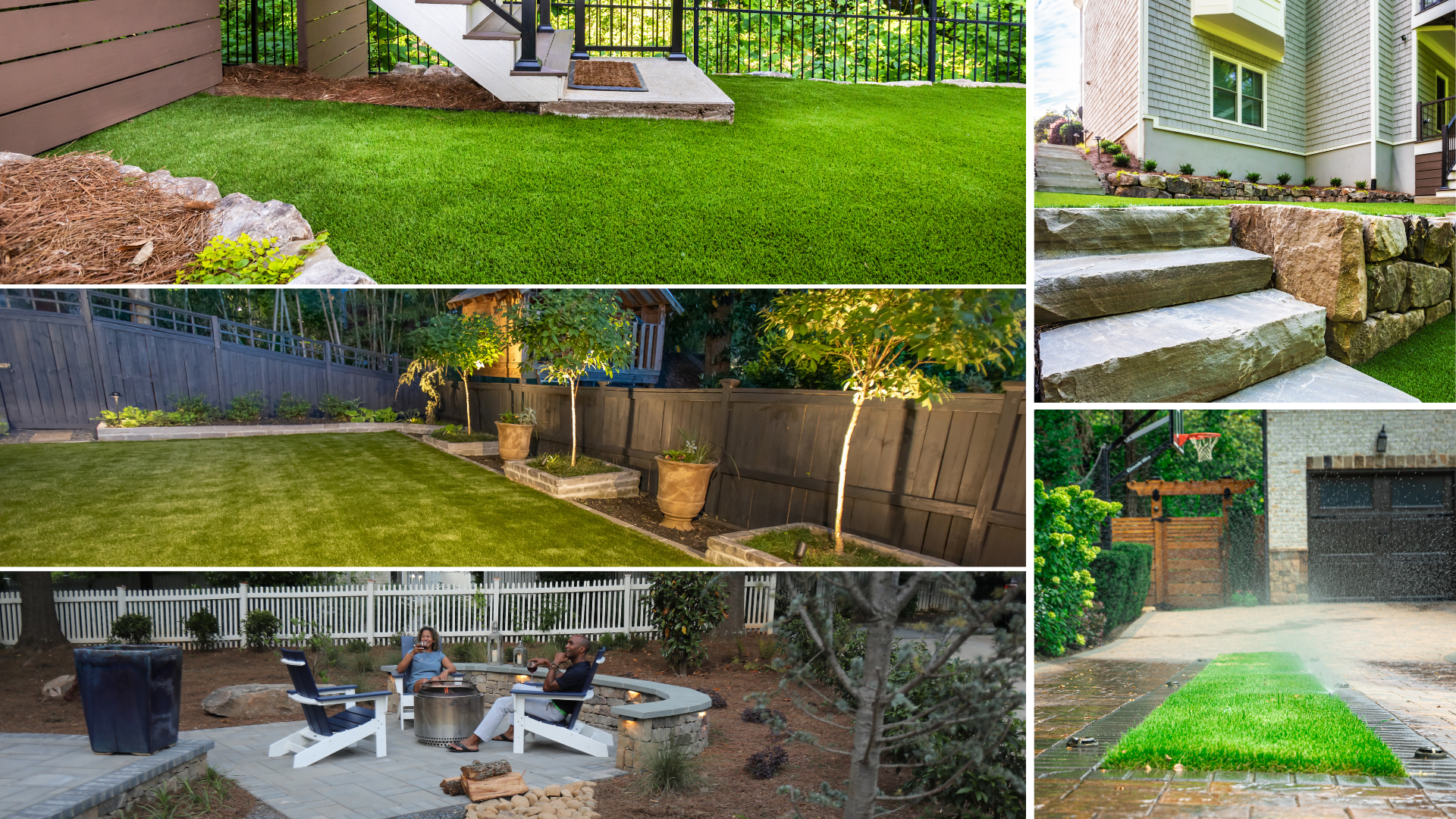 The Ultimate Outdoor Spring Cleaning Guide for Your Yard & Patio
The Ultimate Outdoor Spring Cleaning Guide for Your Yard & Patio
LET'S BE SOCIAL: